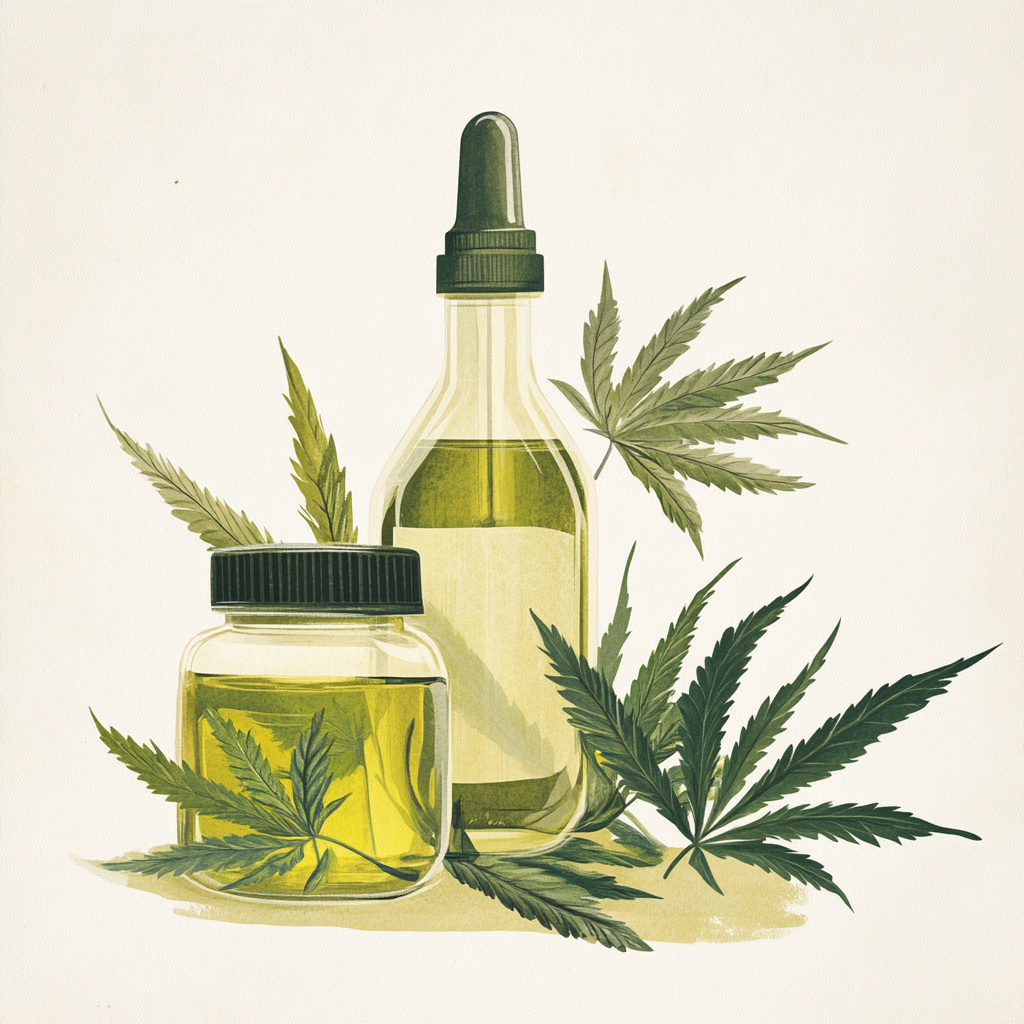Federal Study Reveals Gender-Based Cannabis Consumption Trends

Detailed national data from the National Survey of Drug Use and Health provides fascinating information on Americans’ preference for cannabis, with pronounced gender disparities that speak to the sophistication of today’s cannabis market.
Men prefer smoking cannabis (19.8% compared to 14.3% of women), while women prefer edibles, drinks, and topical uses.
The analysis by the Substance Abuse and Mental Health Services Administration used 2022-2023 national survey responses, providing valuable information on shifting consumption patterns in populations.
Women had over twice the interest in topical products like creams, lotions, and patches (2.5% vs. 1.2% for men). Women used oral drops, lozenges, and sprays as well, which suggests interest in controlled, measured dosing technology that delivers therapeutic without causing immediate intoxication.
The figures show men smoked in all the different groups, with women consistently opting for edibles and drinkables. The trend was consistent over a broad cross-section of the population, and it would imply differences in actual preference rather than barriers to access.
The 18-to-25-year-old age group had the most varied consumption practices, with almost 28% having used three or more methods. The polyuse trend is an indication that young users are trying out different means of delivery to seek desired effects.
These are consistent with the growing trend of edibles and topicals product categories, reflecting growing interest in cannabis for specific therapeutic use as opposed to consumption for recreational use. Women appear particularly interested in using cannabis to treat pain, anxiety, and sleep.
The findings have significant implications for product development, health communication, and prescribing medical cannabis, since the routes of consumption pose varying therapeutic benefits and risks.
Source: marijuanamoment.net
Hemp Seed Oil Shows Promise for Wound Healing in Breakthrough Medical Study

A new study in Narra Journal confirmed that hemp seed oil speeds up the wound healing process dramatically, performing better than conventional antibiotic remedies in test samples.
Universitas Syiah Kuala research shows encouraging results for the use of cannabis in medicines.
The rigorous 21-day trial tested the wound healing effects of hemp seed oil using sound scientific methodologies, assessing wound size reduction, tissue growth, and angiogenesis or the creation of new vessels. Hemp seed oil was shown to be more effective compared to chloramphenicol ointment, a standard wound healing treatment.
And most notably, the healing reactions to hemp seed oil improved dramatically by day 14 with 97% healing versus 93% for antibiotic therapy. Hemp seed oil by day 21 had a nearly complete healing response with 99.94%. The treatment also enhanced the formation of new skin and blood vessel tissue for the healing process to be effective.
The studies revealed the multi-faceted utility of the hemp seed oil in its concentrated storehouse of therapeutic compounds like omega-3 and omega-6 fatty acids that are anti-inflammatory and cannabinoids that are antimicrobial and tissue-restorative. The synergy acts at the same time on various aspects of the healing process.
The researchers reported very good safety profiles with few side effects, concluding that hemp seed oil could be an inexpensive, natural substitute for traditional wound care treatments. The results are especially promising for patients who prefer plant-based therapies.
Although carried out in lab settings, the study forms solid basis for future human clinical trials. Researchers pointed out that the therapeutic potential of hemp seed oil goes beyond wound healing, and it may be beneficial in a number of skin diseases and inflammatory conditions.
This finding is part of increasing evidence for the medical applications of cannabis compounds, which demonstrates the way plant medicines can enhance and complement standard treatments.
Source: pmc.ncbi.nlm.nih.gov
Malta’s Cannabis Evolution: Learning from Implementation Challenges

Malta’s pioneering legalization of cannabis is ongoing as legislators continue to perfect the system following actual implementation. As the first EU country to legalize cannabis for adult use, Malta’s precedent is particularly well-suited to lead other jurisdictions toward reform.
Later amendments cater to societal grievances by including provisions for household consumption when neighbors are disturbed, e.g., fines up to €235 for disturbance caused by the smell of cannabis. Other protective measures mandate locked storage in the presence of minors, capturing the vision of responsible consumption.
The laws are still catching up with Malta’s particular problems of inner city density. Cannabis clubs are not allowed near schools and youth clubs, and cultivation is encouraged with techniques for discrete growing that respect neighbourhood norms.
These developments underscore the balance between social solidarity and individual freedom that characterizes good cannabis policy. The Maltese model demonstrates how legalization is an evolutionary process based on constant input from society and learning from practical experience.
The initial 2021 law established permissive conditions with the inclusion of plant cultivation, up to 7 grams possession, and home holding of 50 grams. The basic rights and freedoms are not interfered with as supplementary legislation is used to ensure responsible use within the close Maltese networks.
Both critics and supporters concur that cannabis policy regulation should be a constant dialogue between policymakers, users, and communities. Malta’s experience is a useful benchmark for other European countries who are considering reforming cannabis policy, revealing both the promise and the pitfalls of new drug policy.
The development is reflective of broader trends of cannabis legalization where early frameworks are adapted based on in-field observations, community input, and changing norms.
Source: lovinmalta.com
London Advances Cannabis Reform: Mayor Endorses Evidence-Based Decriminalization

London’s mayor, Sadiq Khan, accepted progressive recommendations from the Commission on Drugs in London not to make possession of cannabis for personal use a criminal offence anymore. The move signals growing support for evidence-led policy reform in the UK.
The commission, led by Lord Charlie Falconer KC and comprising over 200 international experts, issued 42 detailed recommendations following an analysis of policy success across the globe. The proposed model would maintain criminal sanctions for supply but treat personal possession as a civil issue.
The commission asserted that the current listing of cannabis as a Class B drug is “disproportionate to the harm it can cause,” based on overwhelming evidence gathered from experiences in Canada and the US. The evidence-led policy is indicative of growing international consensus in proportionate cannabis policy.
Lord Falconer is emphasizing the balanced approach: “This is the most considered discussion of cannabis policy for many years. The evidence clearly shows the targeting of criminal law resources against suppliers and not against users.”
The report urges improvements in terms of social justice, highlighting the disproportionate enforcement impacts for Black communities under stop-and-search measures. Deputy chair and former Met Police detective Janet Hills MBE demanded “a fairer and more equitable system” based on three decades of policing.
The commission acknowledged the potential for cannabis dependence as requiring additional supportive services, a health rather than criminal response.
The policy gains made by the researchers are attainable with the speed of implementation with the space to monitor and act on any resulting health concerns.
This positions London at the forefront of UK cannabis policy innovation, with the possibility of influencing national debates on evidence-based drug law reform.
Source: leafie.co.uk
New Driving Research Provides Reassuring Insights for Patients

Interesting new research in the journal Drug and Alcohol Review has brought positive news for the cognitive capacity and roadworthiness of medical cannabis users, with chronic therapeutic use tolerance perhaps acting as a protective factor against impairment. The large-scale research examined oral and vaporized administration of THC in chronic medical cannabis users.
The research recruited 78 users of medical cannabis and monitored the effect of medically prescribed cannabis for the cognitive functions required for driving, i.e., speed of information processing, attention, inhibitory control, and mental flexibility. The patients were evaluated at the baseline (without cannabis) and then following cannabis use based on their respective prescribed doses.
Most reassuringly, the research revealed that acute cannabis consumption did not impair cognitive functions in experienced medical users. Information processing speed, sustained attention, divided attention, and inhibitory control all remained unaffected after cannabis intake, which indicated the protective effect of tolerance induced through regular medical use.
The research employed rigorous methodology, testing subjects 90 minutes following oral ingestion of cannabis and 15 minutes following vaping cannabis flower—timeframes which include the period of highest impairment.
This demonstrates medical cannabis users who have developed tolerance from chronic therapeutic use maintain their cognitive abilities even when at their prescribed dose.
Despite the finding of some change for one test of cognitive flexibility, overall there was evidence for the observation that experienced medicinal users exhibited remarkable stability of cognitive abilities related to driving.
This is a step in the direction of establishing how therapeutic cannabis use differs from non-therapeutic use when it comes to safety outcomes.
The lead researcher for the study said there does appear to be a protective effect with tolerance, with those who are heavy users and use marijuana for medicinal purposes perhaps less impacted than those who use it for recreational or occasional use.
The finding also contributes to mounting evidence that medical cannabis, when used properly under the direction of a doctor, can be therapeutic and consistent with daily functioning.
These findings have important implications for physicians and patients alike to make medical cannabis use choices with regard to considerations of safety.
Source: pubmed.ncbi.nlm.nih.gov


